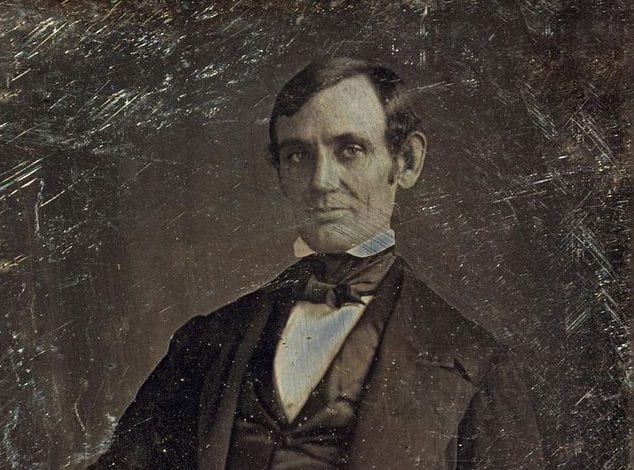


Next Document
An Irrepressible Conflict
October 25, 1858
Conversation-based seminars for collegial PD, one-day and multi-day seminars, graduate credit seminars (MA degree), online and in-person.

No study questions
No related resources
Hon. J. N. Brown
My dear Sir
I do not perceive how I can express myself, more plainly, than I have done in the foregoing extracts. In four of them I have expressly disclaimed all intention to bring about social and political equality between the white and black races, and, in all the rest, I have done the same thing by clear implication
I have made it equally plain that I think the negro is included in the word “men” used in the Declaration of Independence.
I believe the declara-[sic] that “all men are created equal” is the great fundamental principle upon which our free institutions rest; that negro slavery is violative of that principle; but that, by our frame of government, that principle has not been made one of legal obligation; that by our frame of government, the states which have slavery are to retain it, or surrender it at their own pleasure; and that all others-individuals, free-states and national government-are constitutionally bound to leave them alone about it.
I believe our government was thus framed because of the necessity springing from the actual presence of slavery, when it was framed.
That such necessity does not exist in the teritories [sic], when slavery is not present.
In his Mendenhall speech Mr. Clay says
“Now, as an abstract principle, there is no doubt of the
truth of that declaration (all men created equal) and it is desire-able [sic], in the original construction of society, and in organized societies, to keep it in view, as a great fundamental principle”
Again, in the same speech Mr. Clay says:
“If a state of nature existed, and we were about to lay the foundations of society, no man would be more strongly opposed than I should to incorporate the institution of slavery among it’s elements”
Exactly so. In our new free teritories [sic], a state of nature does exist. In them Congress lays the foundations of society; and, in laying those foundations, I say, with Mr. Clay, it is desireable [sic] that the declaration of the equality of all men shall be kept in view, as a great fundamental principle; and that Congress, which lays the foundations of society, should, like Mr. Clay, be strongly opposed to the incorporation of slavery among it’s elements.
But it does not follow that social and political equality between whites and blacks, must be incorporated, because slavery must not. The declaration does not so require.
Yours as ever
A. Lincoln

Conversation-based seminars for collegial PD, one-day and multi-day seminars, graduate credit seminars (MA degree), online and in-person.